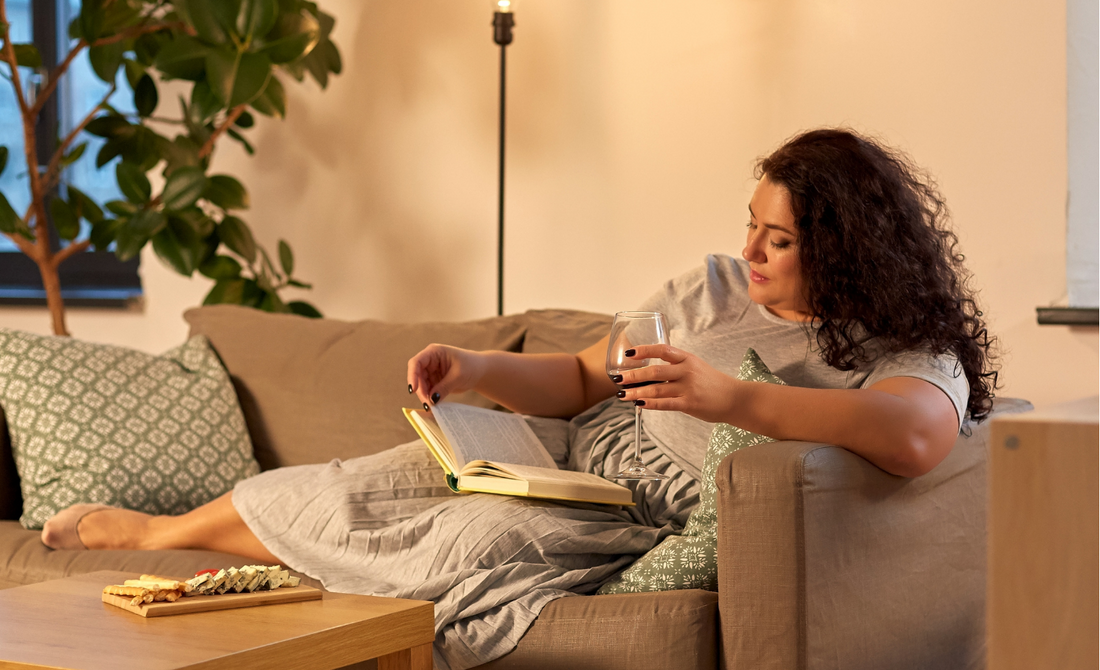
The Truth About Drinking Alcohol Before Bed: What You Need to Know
After a long day, it might feel like pouring yourself a glass of wine or enjoying a nightcap is the perfect way to unwind before bed. Alcohol has a reputation for helping people relax, so it’s easy to see why many turn to it in the evening. But have you ever wondered how that glass of wine might be affecting your sleep?
Let’s explore what happens when you drink alcohol before bed and why it might not be the best choice if you’re aiming for a good night’s sleep.
Alcohol and Sleep: A Complicated Relationship
Alcohol is a sedative, so it can initially make you feel sleepy. This is why many people think it’s a good idea to have a drink before bed. However, the story doesn’t end there. While alcohol may help you fall asleep faster, it can interfere with the quality of your sleep in several ways:
1. Disrupted Sleep Cycles: Alcohol affects your sleep architecture, the structure of your sleep stages. After the initial sedative effect wears off, alcohol can lead to more awakenings during the night, especially during the second half of your sleep cycle. This disrupts the REM (Rapid Eye Movement) stage of sleep, which is crucial for memory consolidation and mood regulation.
2. Dehydration: Alcohol is a diuretic, meaning it makes you need to use the bathroom more often. This can lead to dehydration, causing you to wake up feeling groggy, with a dry mouth, or even a headache. Not exactly the fresh start you were hoping for!
3. Worsened Sleep Apnea: If you suffer from sleep apnea, alcohol can make it worse. Alcohol relaxes the muscles in your throat, increasing the likelihood of breathing interruptions during sleep, which can lead to snoring and frequent awakenings.
4. Impact on Hormones: Drinking alcohol before bed can interfere with the production of melatonin, the hormone that regulates your sleep-wake cycle. This disruption can throw off your internal clock, making it harder to fall asleep and wake up at the right times.
So, while alcohol might help you drift off initially, the overall impact on your sleep is negative. You might wake up feeling tired, irritable, and far from well-rested.
Better Ways to Wind Down
Understanding the impact of alcohol on your sleep might leave you wondering what other options you have for a relaxing bedtime routine. Luckily, there are plenty of natural alternatives that can help you unwind and prepare your body for restful sleep.
1. Sleep Supplements: Natural supplements can be a game-changer for your sleep routine. Domo's Sleep Gummies contain 5-HTP (5-Hydroxytryptophan), which is a naturally occurring amino acid that helps boost serotonin levels, that in turn can improve your mood and help regulate sleep. Also containing Passiflora, or passionflower, which is a plant known for its calming effects. Together, they can help you relax and drift off to sleep without the negative side effects of alcohol.
2. Herbal Teas: A warm cup of herbal tea, like chamomile or peppermint, can help soothe your mind and body. These teas are caffeine-free and have natural calming properties, making them perfect for bedtime.
3. A Warm Bath: Taking a warm bath before bed can relax your muscles and lower your core body temperature, signalling to your body that it’s time to sleep. Add some lavender oil to your bath for an extra calming effect.
4. Mindfulness and Meditation: Practicing mindfulness or meditation before bed can help clear your mind of the day’s stresses. This mental clarity can make it easier to fall asleep and enjoy deeper, more restful sleep.
5. Establish a Consistent Routine: Going to bed at the same time every night and waking up at the same time each morning helps regulate your body’s internal clock. This consistency reinforces healthy sleep patterns and makes it easier to fall asleep naturally.
Final Thoughts
While that evening drink might seem like a good idea, the impact on your sleep quality isn’t worth it. Opting for natural alternatives like Domo's 5-HTP and Passiflora Sleep Gummies, herbal teas, or a relaxing bath can help you achieve a restful night’s sleep without the negative side effects of alcohol. Remember, a good night’s sleep is essential for feeling your best, so why not make choices that truly support your health and well-being?
Next time you’re tempted to pour a drink before bed, try one of these sleep-friendly alternatives instead—you might be surprised at how much better you feel in the morning!




